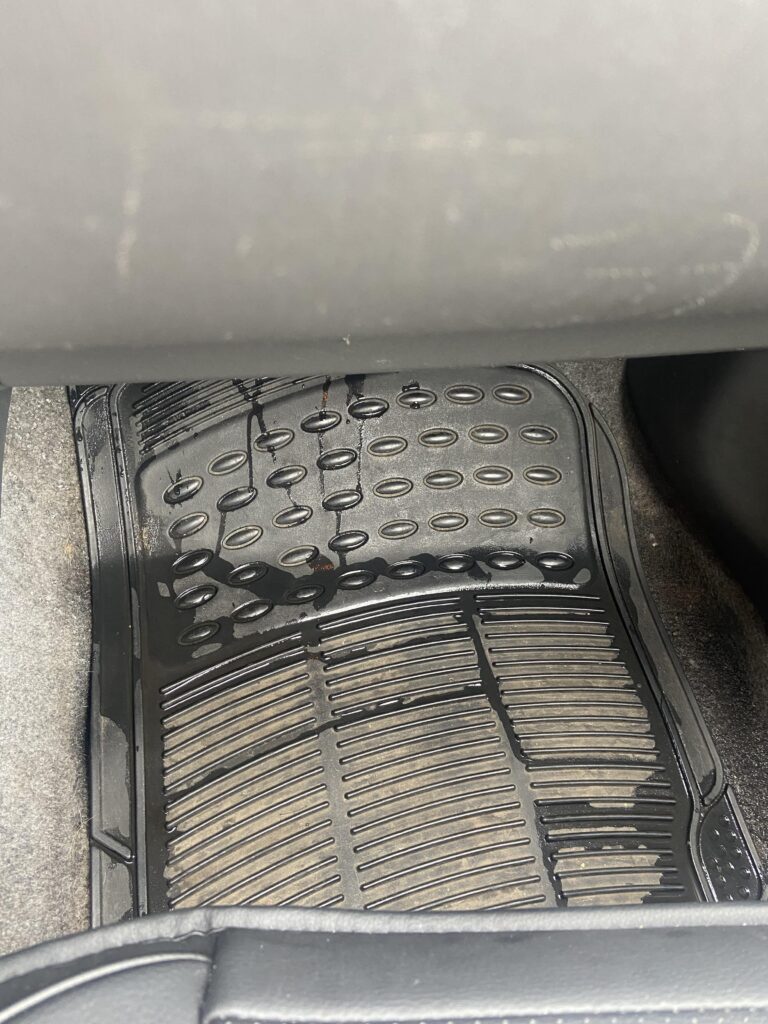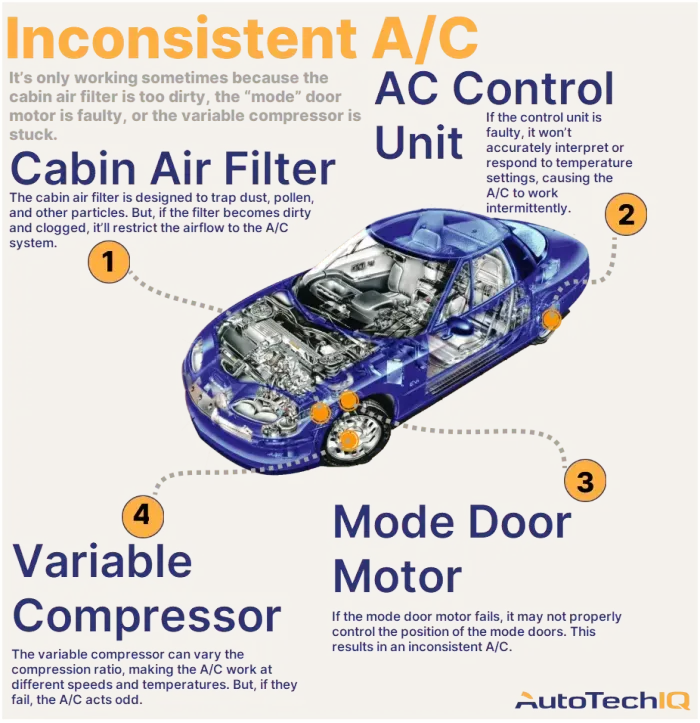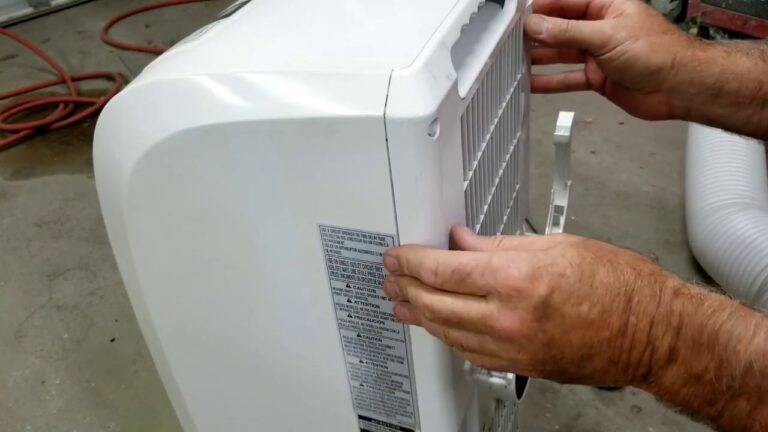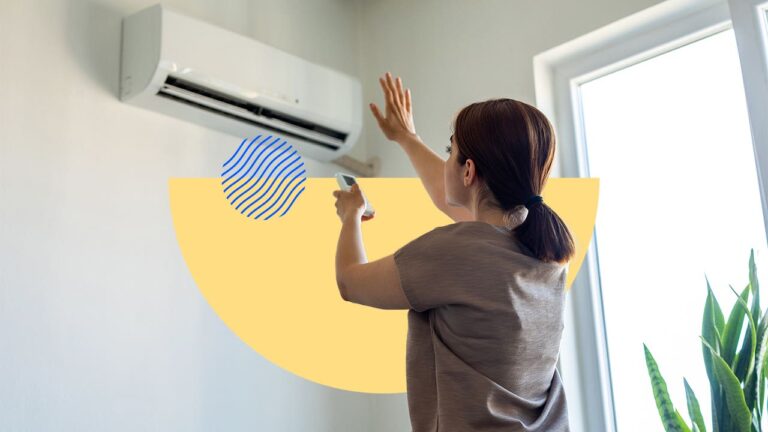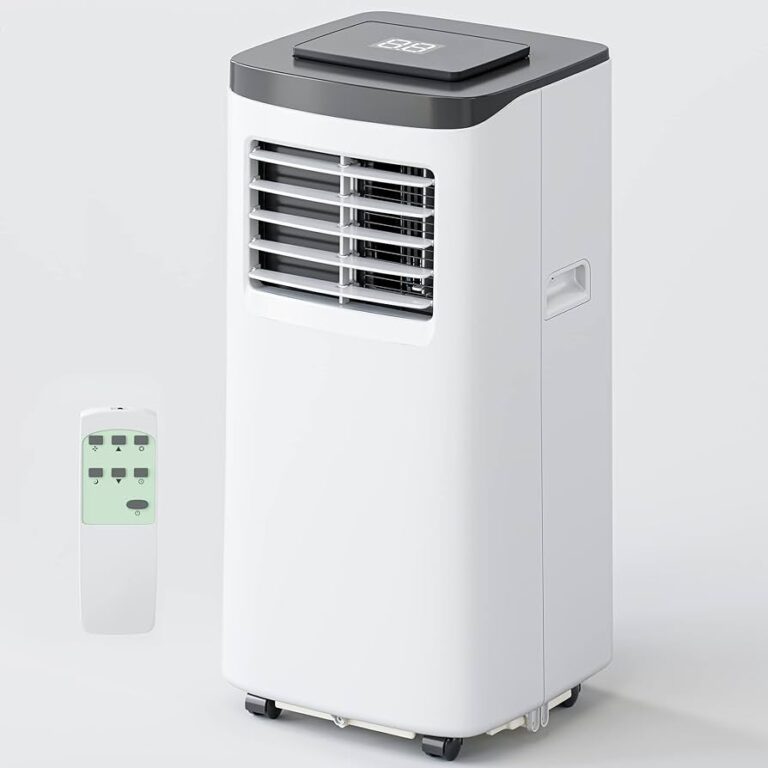Why Does My Air Conditioning Smell Like Rotten Eggs?: Causes & Fixes
Your air conditioning might smell like rotten eggs due to a gas leak or mold buildup. Both issues require immediate attention.
A rotten egg smell from your air conditioning can be alarming. This odor often indicates a serious problem like a gas leak, which poses significant health risks. Alternatively, mold or bacteria buildup in the system can also emit foul smells.
These contaminants can affect air quality and cause respiratory issues. Ignoring these signs can lead to more severe problems and costly repairs. Regular maintenance and prompt action are crucial for a safe and efficient air conditioning system. Always consult a professional to diagnose and fix the issue to ensure your home remains safe and comfortable.

Credit: www.mrrooter.com
Common Causes Of Foul AC Odors
Experiencing foul odors from your air conditioning can be unsettling. The smell of rotten eggs is particularly concerning. Identifying the cause is essential for maintaining a healthy living environment. Here are the common causes of foul AC odors.
Sulfur Buildup
A common reason for a rotten egg smell is sulfur buildup. This could be due to hydrogen sulfide gas. This gas is often found in contaminated water sources. When this gas mixes with your AC, it produces a foul odor. To address this, you may need to check your water supply. Installing a water filter can be helpful.
Dead Animals
Another possible cause is the presence of dead animals in your AC system. Small animals like rodents and birds may find their way into your vents. If they die there, they can produce a strong, unpleasant smell. Regularly inspect your vents to ensure they are clear. Using pest control measures can prevent this issue.
Identifying Sulfur Buildup
Does your air conditioning smell like rotten eggs? This unpleasant odor often indicates sulfur buildup. Identifying the source of sulfur is crucial for resolving this issue. Understanding the impact on air quality can help you take the right action.
Source Of Sulfur
Sulfur often comes from decaying organic matter. When bacteria break down this matter, hydrogen sulfide gas is released. This gas is the source of the rotten egg smell. Sulfur can also enter your HVAC system from contaminated water.
| Source | Description |
|---|---|
| Decaying Organic Matter | Bacteria break down matter, releasing hydrogen sulfide gas. |
| Contaminated Water | Water with sulfur compounds can contaminate the system. |
Impact On Air Quality
The smell of rotten eggs can affect indoor air quality. Breathing in hydrogen sulfide gas may cause health issues. Symptoms include headaches, dizziness, and irritation of the eyes. Long-term exposure can be more harmful.
- Headaches: Prolonged exposure can cause severe headaches.
- Dizziness: You may feel lightheaded or faint.
- Eye Irritation: Your eyes might become red and itchy.
Ensure your air conditioning is checked regularly. Addressing sulfur buildup early can prevent these issues. Regular maintenance helps keep your air clean and fresh.
Locating Dead Animals In Ac
Does your air conditioning smell like rotten eggs? This foul smell might be due to a dead animal trapped inside your AC system. It’s crucial to locate and remove the source to restore fresh air in your home.
Signs Of Infestation
Unusual noises: Scratching or scurrying sounds can indicate an animal trapped inside.
Foul odors: A persistent rotten egg smell is a key sign of a dead animal.
Increased insect activity: Flies and other insects might swarm near vents.
Inspection Tips
- Turn off the AC: Ensure safety by disconnecting power before inspection.
- Check vents and ducts: Look for any visible signs of nests or droppings.
- Use a flashlight: Shine light into the ducts to spot any remains or debris.
- Inspect the outdoor unit: Animals might enter through the external AC parts.
- Call a professional: If you’re unsure, contact an HVAC technician for thorough inspection.
If you notice any of these signs or suspect an infestation, act quickly. Removing the source of the smell is essential for maintaining healthy indoor air quality.
Mold And Mildew Growth
One common reason for an air conditioning unit smelling like rotten eggs is the growth of mold and mildew. These fungi thrive in moist environments, making your AC unit a perfect place for them. Mold and mildew not only cause unpleasant odors but can also pose health risks. Understanding the causes and prevention methods for mold is essential.
Causes Of Mold
Mold and mildew grow in damp, dark places. Your AC unit can provide both. Moisture accumulates in the system from condensation. If the unit does not drain properly, it becomes a breeding ground for mold. Poor ventilation also contributes to mold growth. Airflow is necessary to keep the system dry. A clogged or dirty air filter can restrict airflow, leading to moisture buildup.
Another cause is organic material like dust and dirt. These materials can settle inside the AC unit. They provide food for mold spores. Once mold starts growing, it spreads quickly.
Preventing Mold
Preventing mold in your AC unit requires regular maintenance. Here are some steps to follow:
- Change the air filter regularly to ensure proper airflow.
- Clean the condensate drain line to prevent water buildup.
- Ensure proper ventilation to keep the system dry.
- Use a dehumidifier in humid climates to reduce moisture.
- Schedule professional inspections to check for mold growth.
By following these steps, you can keep your AC unit free of mold. Regular maintenance is key to preventing mold and ensuring your AC works efficiently.
Issues With Air Filters
One common reason for a foul smell in your air conditioning system is issues with air filters. Air filters play a crucial role in maintaining air quality. They trap dust, dirt, and other particles. But, if these filters become dirty or clogged, they can cause unpleasant odors, including the smell of rotten eggs.
Dirty Filters
Dirty filters can significantly impact the performance of your air conditioning system. When filters are dirty, they become a breeding ground for mold and bacteria. This can lead to unpleasant smells permeating your home. These filters can also restrict airflow, making your system work harder and less efficiently.
| Problem | Cause | Solution |
|---|---|---|
| Unpleasant Smell | Dirty Filters | Clean or Replace Filters |
| Reduced Efficiency | Clogged Filters | Clean or Replace Filters |
Replacing Filters
Replacing your air filters regularly is crucial. It ensures your air conditioning system runs efficiently. Follow these simple steps to replace your filters:
- Turn off your air conditioning system.
- Locate the air filter compartment.
- Remove the old filter.
- Insert a new filter of the same size and type.
- Secure the compartment and turn the system back on.
Regular maintenance and filter replacement can prevent foul odors. It also helps keep your air conditioning system running smoothly. Make sure to check your filters at least once a month. Replace them every three months, or as needed.
Drainage Problems
Does your air conditioning smell like rotten eggs? This could be due to drainage problems. When your AC system’s drainage is not working right, it can cause terrible odors. Below, we will discuss two key issues: clogged drains and cleaning solutions.
Clogged Drains
A clogged drain is a common reason for bad smells in air conditioning. Over time, dirt and debris build up in the drain line. This blockage prevents water from draining properly. Stagnant water creates a perfect environment for bacteria and mold. This can lead to a rotten egg smell.
Signs of a clogged drain include:
- Water pooling around the indoor unit
- Visible mold or mildew near the drain line
- Frequent system shutdowns
Regular maintenance can help prevent these issues.
Cleaning Solutions
To fix drainage problems, you need to clean the drain line. Here are some cleaning solutions:
- Vinegar Solution: Mix equal parts water and vinegar. Pour it into the drain line to kill mold.
- Bleach Solution: Use a diluted bleach solution for heavy clogs. It helps disinfect the line.
- Vacuum: Use a wet/dry vacuum to suck out debris from the drain line.
These methods can help keep your AC smelling fresh.
| Cleaning Method | Materials Needed | Frequency |
|---|---|---|
| Vinegar Solution | Water, Vinegar | Monthly |
| Bleach Solution | Bleach, Water | Every 3 Months |
| Vacuum | Wet/Dry Vacuum | As Needed |
Regular cleaning will ensure your air conditioning system runs smoothly.
Chemical Leaks
One of the reasons your air conditioning might smell like rotten eggs is due to chemical leaks. These leaks can be dangerous and require immediate attention. Understanding how to identify and handle them is crucial for your safety.
Identifying Leaks
Chemical leaks can cause a foul odor in your home. Here are some signs to look for:
- Strong smell of rotten eggs
- Visible liquid around the AC unit
- Unusual hissing sounds
If you notice any of these signs, your air conditioning might have a chemical leak.
Safety Precautions
When dealing with chemical leaks, safety is paramount. Follow these steps to stay safe:
- Turn off your air conditioning unit immediately.
- Open windows and doors to ventilate your home.
- Do not touch or attempt to clean up the leak yourself.
- Contact a professional technician for assistance.
Always prioritize your safety and seek professional help when dealing with chemical leaks.
Professional Solutions
When your air conditioning smells like rotten eggs, it’s time to consider professional solutions. A professional technician can identify and fix the issue quickly. Here we discuss when to call a technician and the cost of repairs.
When To Call A Technician
It’s crucial to call a technician if you smell rotten eggs from your AC. This smell often indicates a serious problem. It could mean there is a gas leak or a dead animal inside the unit. Both situations are hazardous.
Technicians have the tools and skills to handle these issues safely. They can identify the source of the smell and fix it. If you ignore the smell, it could lead to more serious problems. Always act quickly when you notice unusual smells.
Cost Of Repairs
The cost of repairs can vary based on the problem. Simple issues like a dead animal removal might cost less. However, gas leak repairs can be more expensive.
| Repair Type | Estimated Cost |
|---|---|
| Dead Animal Removal | $100 – $300 |
| Gas Leak Repair | $200 – $1,000 |
| System Cleaning | $75 – $200 |
It’s wise to get an estimate before proceeding with repairs. Ask the technician for a detailed cost breakdown. This helps avoid unexpected expenses.
Investing in regular maintenance can save money in the long run. Regular check-ups can prevent serious issues. Ensure your AC runs smoothly and smells fresh.
Credit: www.reddit.com
Frequently Asked Questions
How To Get Rid Of Smelly Air Conditioner?
Clean or replace the air filter. Use a mild detergent to clean the coils. Ensure proper drainage to prevent mold. Use an air purifier. Schedule regular maintenance.
How Do You Get The Rotten Egg Smell Out Of The Air?
Use baking soda and water to neutralize the smell. Increase ventilation by opening windows. Use activated charcoal or air purifiers.
Should I Be Concerned If My AC Smells?
Yes, you should be concerned. A smelly AC can indicate mold, bacteria, or other issues. Contact a professional for inspection.
Conclusion
A rotten egg smell from your air conditioning can be alarming. It often signals a serious issue like a gas leak. Addressing it promptly ensures safety and comfort. Regular maintenance helps prevent such problems. Keep your home safe by consulting a professional HVAC technician.
Your air conditioning should always provide fresh, clean air.

